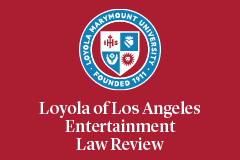Abstract
The unprecedented and exponential growth of resale is both a rose and a thorn to the luxury market. Some fashion brands construe resale as an opportunity to diversify and expand their client base; while others, who firmly subscribe to a luxury philosophy grounded in exclusivity, believe resale threatens everything from their brand allure to their very existence. Indeed, when Chanel declared that “[o]nly Chanel itself can know what is genuine Chanel,” it opened Pandora’s box by providing far more than a peek into its litigation strategy. Chanel’s declaration all but declared war on the secondary resale market in not only undermining the authenticity of authentic products in the resale stream of commerce, but in claiming the sole right to preserve, protect and police its marks throughout its branded products’ life, well after the first sale.
Because counterfeiting’s proliferation and resale’s global expansion, luxury brands’ desire to police their trademarks has effectively expanded the scope of trademark enforcement rights beyond what the Lanham Act confers. Largely as a result of the law’s inability to keep pace and afford mark holders expanded enforcement rights to target counterfeiters at their source, luxury brands have resorted to policing their marks through instituting litigation against resellers, “partnering” with resellers to serve as authentication gatekeepers to the resale stream of commerce; or in expanding their own businesses by bringing resale in-house. Irrespective of whichever poison they pick, luxury brands are effectively seeking to expand their trademark rights beyond the first sale—which the Lanham Act’s legislative history specifically proscribed against—in effectively adding a stick to the trademark bundle of rights to claim a post-first sale trademark enforcement and authentication right. In so doing, luxury brands are pushing the bounds of trademark law into the very territory the Lanham Act drafters feared mark holders world: antitrust territory.
This Note examines how luxury brands’ recent entree and involvement in resale raises antitrust concerns and how both luxury brands and resellers can more effectively address their concerns within the bounds of trademark law through alternative respective resale engagement strategies; revised strategies to solidify their respective legal and market positioning; and partnership opportunities between resellers and luxury brands to collaborate in fighting their common enemy in counterfeiting.
Recommended Citation
Betina A. Baumgarten,
One Too Many Sticks for the Trademark Bundle? The Unintended Consequences of Luxury Brands’ Push for a Post-First Sale Authentication Right,
42 Loy. L.A. Ent. L. Rev. 111
(2022).
Available at: https://digitalcommons.lmu.edu/elr/vol42/iss2/2


